Free and Open to the Public
Dark Skies Conference
Saturday, June 1, 2019
10 A.M. - 4 P.M.
ABOUT
Join us to learn about the consequences of indiscriminate, obtrusive, unwanted, artificial light at night. Research on the effects of low levels of light on the nighttime ecosystem is exposing negative impacts on plants and animals. Light pollution impacts astronomical research. The wasted energy of sending light into the sky contributes to anthropogenic global warming. The inability of 80% of the population in the US to see a clear night full of stars may have far-reaching consequences that are as yet difficult to quantify.
CMU researchers are using drones to record light pollution before, during, and after installation of 40,000 new LED streetlights to measure their dark-sky effect. Cities around the world have already installed LED streetlights because of the great energy and maintenance savings, yet many citizens have not been happy with the results. Issues of light coloration and lumen intensity have raised health and circadian rhythm concerns, as well as safety issues due to increased light levels and glare. To achieve best-practices for both nighttime visibility and dark-sky concerns, the City will be installing shielded streetlights with temperatures of no more than 2700K.
Use of a fleet of off-the-shelf drones (Mavic 2 Pro) and a free iPhone app to control the flight path for photography will allow other cities to follow our simple procedure. The nighttime maps of the city (all 55 square miles) will be uploaded to the public site Burgh’s Eye View. We are coordinating volunteers through IDAPgh.org, the Pittsburgh section of the International Dark-sky Association.
The conference will consider the human medical effects of artificial light at night, disruption on the nighttime ecosystem, safety issues, and impact on astronomical research.
Speakers
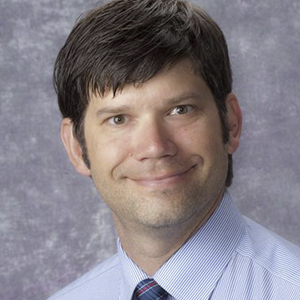
Brant P. Hasler, PhD, DBSM
Assistant Professor of Psychiatry, Psychology, and Clinical and Translational Science at the University of Pittsburgh School of Medicine
Dr. Hasler’s NIH-funded research program focuses on the role of sleep and circadian rhythms in regulating affect and motivation, particularly as relevant to affective disorders and substance abuse. In addition to his research program, Dr. Hasler is actively engaged in research mentorship and clinical supervision, as well as direct clinical practice, and is the Director of the accredited Behavioral Sleep Medicine training fellowship within the Center for Sleep and Circadian Science at the University of Pittsburgh.
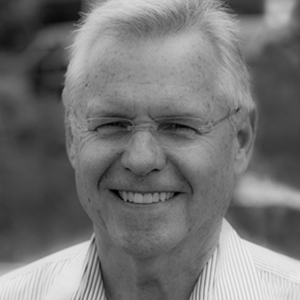
Stephen Quick
FAIA LEED-AP SEED Principal, Civic Design and Planning LLC Adjunct Professor of Architecture / Urban Design
Stephen Quick is an urban designer and planner, architect, and educator, and he has practiced as a principal urban designer and architect in Pittsburgh since 1980. As an educator at Carnegie Mellon Steve teaches in both the graduate and undergraduate programs with design studios that integrate urban design and architecture, performance- and systems-design, and civic engagement. His courses have been informed by research through the Remaking Cities Institute in planning processes and guidelines, consensus-building civic engagement, and the integration of smart city infrastructure and data analytics with computer science and engineering. Steve’s recent work on the Dark-Sky study began from his previous work assisting the City of Pittsburgh with its LED streetlight program, including developing lighting and control system specifications. This work led to working with Diane Turnshek on dark-sky and nighttime vision and now to the current study using drones to map Pittsburgh’s dark-sky pollution before, during, and after installing the new streetlights.
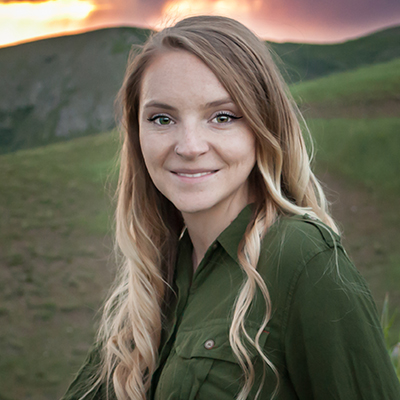
Bettymaya Foott
Director of Engagement, IDA
Bettymaya Foott grew up in picturesque Moab, Utah. Spending summer nights sleeping on the family trampoline under the stars, she fostered an early appreciation for the night sky. Her childhood was filled with hiking, camping, boating and wandering in the desert, both below the hot sun and under clear dark skies. She graduated from the University of Utah with an H.B.S. in Environmental and Sustainability Studies and a Minor in Spanish Language and wrote a thesis entitled “Light pollution hazards within ecosystems and mitigation strategies for the future.” Her dark sky career began with working for Utah State Parks as a Dark Sky Intern and then seasonal employee, starting 12 International Dark-Sky Park Applications across the state. She then worked as Coordinator for the Colorado Plateau Dark Sky Cooperative and the Consortium for Dark Sky Studies at the University of Utah. Now, she is incredibly excited to join the team at IDA as Director of Engagement. When off the clock, Foott loves to practice night sky photography. Preserving dark skies is her life goal and she is incredibly excited to continue this journey of saving the stars!
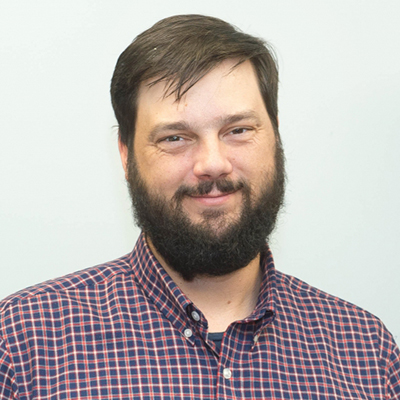
Michael Wood-Vasey
Time-Domain Astronomer
Michael Wood-Vasey does time-domain astronomy using sophisticated databases to analyze large data sets taken by next generation astronomical telescopes. He works with the LSST Construction Project Data Management team, is the PI of SweetSpot, an NSF-funded, 3-year NOAO Survey project, is a member of the Dark Energy Science Collaboration (DESC), co-leading the Data Access Task Force. He served as Co-Convenener for the DESC Supernova Cosmology Working Group and was the Scientific Spokesperson for SDSS-III, a 6-year project that surveyed millions of galaxies and hundreds of thousands of quasars. Previously, he has been involved in Pan-STARRS-1 survey telescope in Hawai'i. This project has discovered thousands of supernovae and other interesting transient events over a 3-year survey.
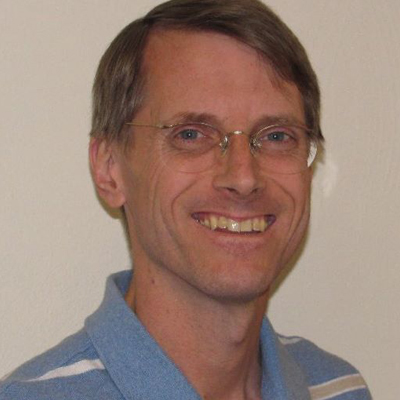
Chris Mullin
Chris Mullin has a Physics PhD from UC Berkeley and is an avid amateur astronomer with an 8" Schmidt Cassegrain telescope on a motorized mount. He's been an active member of the Amateur Astronomical Society for over a decade.

Michael Lincoln
Director, IDA
Michael Lincoln is a drone specialist, instructional technology specialist, photographer, videographer, and technology and media educator. He earned his BSBA at Robert Morris University (Bachelors of Science in Business Administration within the area of secondary education) and completed his Masters work at the University of Pittsburgh (Instructional Technologies and School Administration). He owns and operates TopShot Aerials Drone Services. Michael has consulted and collaborated with many organizations in both the education and commercial spaces to solve problems and enhance services with innovative technologies and processes. He is the Director of IDA Pennsylvania.
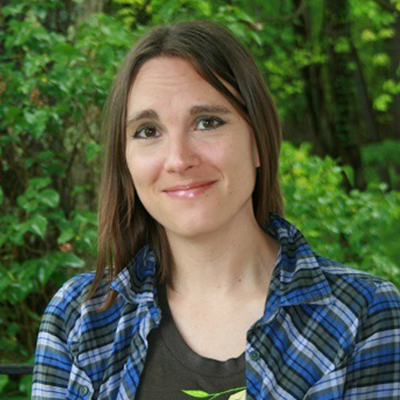
Jamie Lackey
Writer
Jamie Lackey lives in Pittsburgh with her husband and their cat. She has had over 150 short stories published in places like Beneath Ceaseless Skies, Apex Magazine, and Escape Pod. Her debut novel Left-Hand Gods is available from Hadley Rille Books, and she has two short story collections available from Air and Nothingness Press. In addition to writing, she spends her time reading, playing tabletop RPGs, baking, and hiking. You can find her online at www.jamielackey.com.
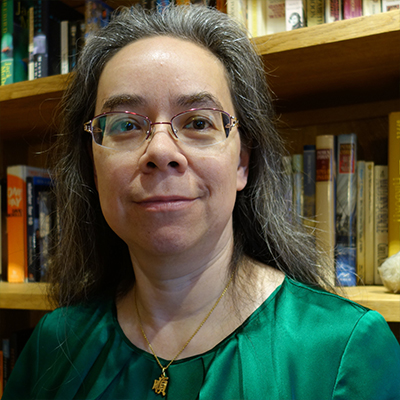
Mary Soon Lee
Writer
Mary Soon Lee was born and raised in London, but now lives in Pittsburgh. She writes both fiction and poetry, and has won the Rhysling Award and the Elgin Award. Her work has appeared in Analog, Daily Science Fiction, F&SF, Science, and Strange Horizons. Her book Elemental Haiku, containing haiku for each element of the periodic table, is forthcoming from Ten Speed Press in October 2019. She has an antiquated website at www.marysoonlee.com and tweets at @MarySoonLee.
More speakers forthcoming . . . .
Location
Simmons Auditorium A&B, Tepper Quad
Carnegie Mellon University
5000 Forbes Ave
Pittsburgh, PA 15213
Free parking in the East Campus Garage on Forbes Ave.
Learn More
Tartan Articles:
https://thetartan.org/2018/10/1/scitech/turnshekdrone
http://thetartan.org/2018/10/29/scitech/dark-sky-1018
Forbes magazine, Apr 16, 2019:
https://www.forbes.com/sites/startswithabang/2019/04/16/this-is-how-to-bring-dark-skies-back-in-an-increasingly-developed-world/#32e847a5406e
New York Times, April 9, 2019:
https://www.nytimes.com/2019/04/09/science/birds-killed-by-buildings.html
National Geographic, April 3, 2019:
https://www.nationalgeographic.com/science/2019/04/nights-are-getting-brighter-earth-paying-the-price-light-pollution-dark-skies/
Popular Science, Jan. 11, 2019:
https://www.popsci.com/reduce-light-pollution
Christian Science Monitor, Dec. 21, 2018:
https://www.csmonitor.com/Science/2018/1221/Chasing-darkness-One-reporter-s-journey-into-the-night
Metro21 podcast:
http://metro21.libsyn.com/diane-turnshek
TEDxPittsburgh "Light Pollution Solutions":
https://www.youtube.com/watch?v=-xSv33prmGY
Carnegie Science Center Cafe Scientifique:
https://player.fm/series/carnegie-science-center-podcast-2374770/light-up-the-sky-with-stars
Conference Organizer
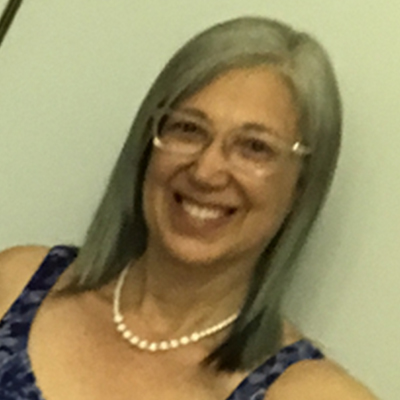
Diane Turnshek
Lecturer, Carnegie Mellon University, Department of Physics
Diane Turnshek is a lecturer in the Department of Physics (CMU) and the Department of Physics and Astronomy (Pitt). She runs the Astronomy Lecture Series at Allegheny Observatory and coordinates astronomy outreach through PghConstellation.com. She crewed the Mars Desert Research Station, where she turned her attention to dark sky advocacy and earned an IDA Dark Sky Defender Award. She gave a light pollution TEDxPittsburgh talk, curated a series of space art galleries and founded the local chapter of the International Dark-Sky Association. In the spring of 2017, she led a CMU student team that won the HP-Intel “Life in Space” contest to make life better for astronauts. With former CMU Astronomy Club President Matt Finlay, she placed second in the 2017 Mars City Design international competition. She was elected to the organizing committee of IAU B7 – Inter-Division B-C Commission Protection of Existing and Potential Observatory Sites. With Chloe Nightingale, she is currently editing the 2019 anthology Triangulation: Dark Skies.
Cover Image Credit: Michael Lincoln, Website